Contrary to popular belief, green tea contains caffeine, albeit in smaller amounts compared to its bolder cousin, black tea, and the morning favorite, coffee.
An 8-ounce serving of green tea typically offers about 20-45 milligrams of caffeine, enough to wake your senses without the jitters. This gentle nudge of energy and its rich antioxidants make green tea a smart and healthful choice.
Whether you're a student needing a mild concentration boost or someone looking to relax with a book, understanding green tea's caffeine content is essential. So, let's dive in and explore how this beloved beverage can fit perfectly into your daily routine, providing just the right amount of lift without overdoing it!
The Average Caffeine Content In Green Tea
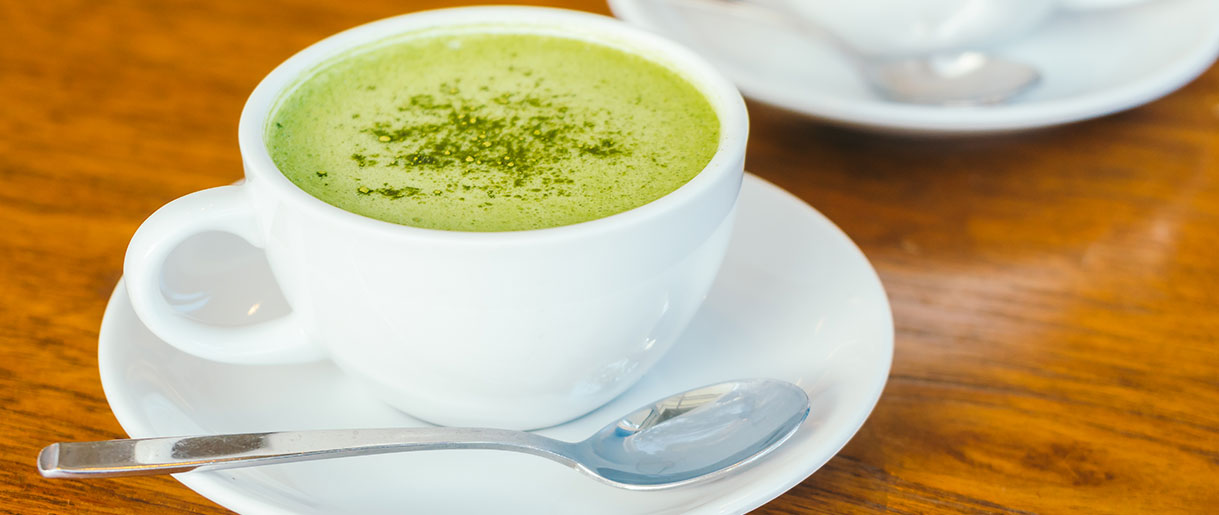
Ever wondered exactly how much caffeine is nestled in your soothing cup of green tea? It's a question many have, especially those mindful of their caffeine intake.
On average, a cup of green tea contains about 20-45 milligrams of caffeine, but this can vary. The caffeine content isn't just a number; it's a key to understanding how your favorite green tea affects you:
- Caffeine and Daily Limits: A single cup of green tea typically represents only a small fraction of adults' recommended daily caffeine limit, generally up to 400 mg. This makes it a gentle companion for your daily caffeine consumption, allowing you to enjoy multiple cups or mix it with other light caffeinated beverages without worry.
- Balanced Nature: Unlike the abrupt kick of a strong coffee, the caffeine in green tea coexists with natural substances like L-theanine, an amino acid that promotes relaxation. This combination is known to smooth out the 'highs and lows,' leading to a more prolonged and steady release of energy. It's the perfect synergy for those seeking alertness without edginess.
Now that you're more informed about the caffeine content in your beloved green tea, you can tailor your tea consumption to fit your lifestyle and caffeine sensitivity.
If you're looking for a gentle morning lift that allows you to wake up with energy or an afternoon dose that boosts your focus and concentration, understanding the caffeine in green tea ensures you can enjoy all its health benefits and rich flavors.
Factors Affecting Caffeine Levels In Green Tea

Navigating the caffeine levels in your green tea is like being the captain of your ship in a sea of tranquility and energy.
It's not just about how much caffeine is in green tea but understanding the factors that sway this number. Whether sipping a classic brew or exploring exotic varieties, these elements are your compass to a perfect cup.
- Variety and Type: From the robust flavor of matcha green tea to the delicate subtlety of decaf green tea, the type drastically sways caffeine content. Powdered green teas like matcha contain more caffeine than your typical brewed green tea because you consume the whole leaf. On the other hand, decaf options offer the same health benefits without the caffeine buzz.
- Brewing Time and Temperature: Like a fine dance, the brewing time and temperature (crucial factors in green tea preparations) play a crucial role. Longer brewing times and higher temperatures coax more caffeine out of those tea leaves. So, if you're monitoring your caffeine intake but still love drinking green tea, keep an eye on that clock and thermometer!
- The Tea's Origin and Processing: Not all green teas are born equal. Green tea bags might offer convenience but often contain more caffeine compared to loose-leaf varieties. Also, other factors like the age of the tea leaves and their treatment post-harvest affect the caffeine levels. Younger leaves and certain processing methods can lead to a higher caffeine concentration, enhancing the green tea effects on the central nervous system.
As you embark on your journey to drink green tea, remember that while it contains caffeine, its interaction with other beneficial compounds, like green tea polyphenols, creates a unique effect unlike other caffeinated drinks or brewed coffee.
This synergy can offer a smoother, more sustained energy boost without the sharp spikes associated with energy drinks or too much caffeine.
So, whether you're comparing pure green tea to black tea, herbal teas, or sour teas, understanding these factors ensures you can enjoy your green tea just the way you like it.
Health Benefits and Effects of Caffeine in Green Tea
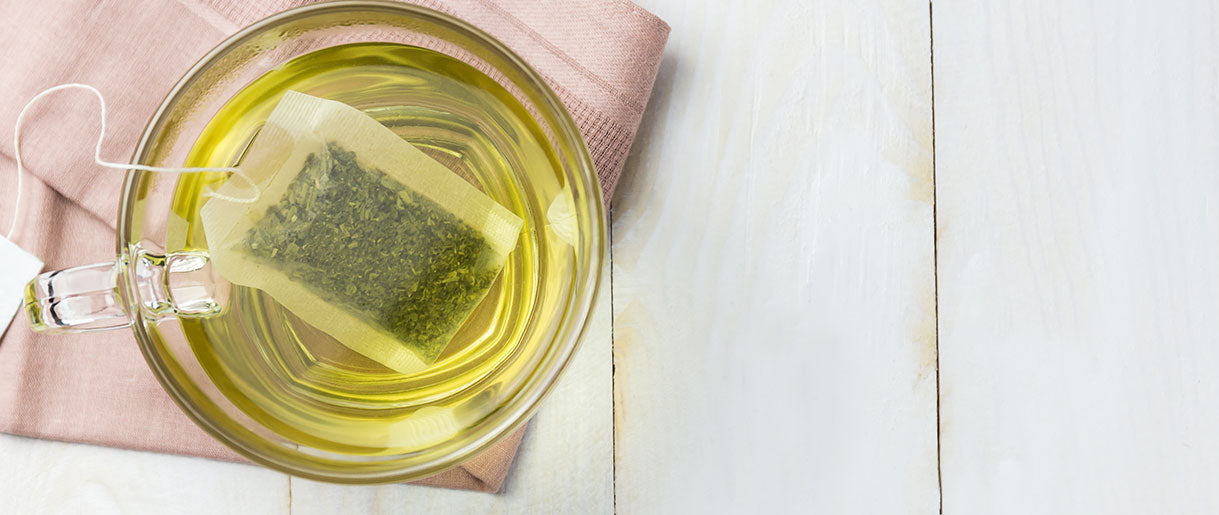
Sipping on green tea is like giving your body a hug from the inside. It's not just a warm, comforting beverage; it's packed with potential health benefits, thanks partly to its dynamic duo: antioxidants and caffeine. Let's understand how these components work together to benefit your well-being.
- Antioxidant Powerhouse: Green tea is renowned for its high concentration of antioxidants (1), particularly catechins. These mighty molecules fight off free radicals, reducing inflammation and potentially lowering the risk of heart disease, cancer prevention, and more. Drinking green tea regularly might just be your tastiest health habit.
- Caffeine and Antioxidants Synergy: While green tea does contain caffeine, it works in tandem with antioxidants to enhance brain function, mental focus, and energy levels. Unlike the caffeine level in stronger beverages, green tea's modest amount provides a gentle boost without overstimulating the central nervous system. This means you can enjoy increased alertness and improved human brain function without the jitters.
- L-Theanine – The Calm in the Storm: Unique to tea plants, L-Theanine is an amino acid that promotes relaxation (2) and works harmoniously with caffeine to improve brain function (3). This combination in green tea may improve your ability to focus and think clearly, providing a balanced state of alertness. It's like being calm and energetic at the same time!
However, it's essential to be mindful of the potential side effects of consuming caffeine. While green tea has less caffeine than many other beverages, too much can lead to nervousness, high blood pressure, and disrupted sleep, especially in sensitive individuals or when consumed in large quantities.
Healthy adults can typically enjoy the benefits of green tea without adverse effects, but it's all about balance and listening to your body.
FAQs About Does Green Tea Have Caffeine?
Does Green Tea Keep You Awake?
Yes, green tea can keep you awake due to its caffeine, which stimulates the central nervous system. However, it contains less caffeine than coffee and other caffeinated drinks, providing a milder and more sustained energy boost without the intense jitters.
Additionally, L-theanine in green tea can promote relaxation and improve focus, leading to a state of alert but calm wakefulness. So, while it can keep you awake, it does so in a gentler way than other caffeinated beverages.
Is Green Tea A Good Alternative To Coffee For Reducing Caffeine Intake?
Green tea is an excellent alternative to coffee for reducing caffeine intake.
It contains significantly less caffeine than coffee, offering a milder energy boost and other health benefits like antioxidants and L-theanine, promoting a calm state of alertness.
It's a healthier choice for those looking to lower their caffeine consumption without giving up a comforting, warm beverage.
Does Green Tea Have Side Effects?
Green tea can have side effects, especially when consumed in large quantities. These may include jitteriness, heart palpitations, upset stomach, and disrupted sleep patterns, primarily due to its caffeine content.
Additionally, some individuals might experience iron absorption issues due to certain compounds in green tea. However, moderate consumption is generally considered safe and beneficial for most people.
Key Takeaways
As we've journeyed through the verdant valleys of green tea knowledge, we've uncovered its delicate dance of caffeine and antioxidants, its gentle energy embrace, and its potential to be both a soothing sip and a vibrant vitality booster. Green tea is more than just a beverage; it's a centuries-old tradition steeped in health and harmony.
Remember, while green tea does have caffeine, its effects are balanced and beneficial for most people when enjoyed in moderation. It's a testament to nature's ability to provide what we need: a little lift, a touch of calm, and a bounty of health benefits.
So, embrace the journey with each cup, whether you're a green tea guru or just starting to explore this emerald elixir. Experiment with brewing times, explore different varieties and find your perfect balance.
And as you do, we'd love to hear from you. Share your experiences, thoughts, and personal brews in the comments below. What's your favorite time to indulge in a cup? How has green tea touched your life? Your story could be the beacon that guides another to their ideal cup of wellness and wakefulness.
References
- Antioxidant effects of green tea, (1), https://www.ncbi.nlm.nih.gov/pmc/articles/PMC3679539/
- Effects of L-Theanine Administration on Stress-Related Symptoms and Cognitive Functions in Healthy Adults: A Randomized Controlled Trial, (2), https://www.ncbi.nlm.nih.gov/pmc/articles/PMC6836118/
- Effects of coffee/caffeine on brain health and disease: What should I tell my patients?, (3), https://pubmed.ncbi.nlm.nih.gov/26677204/




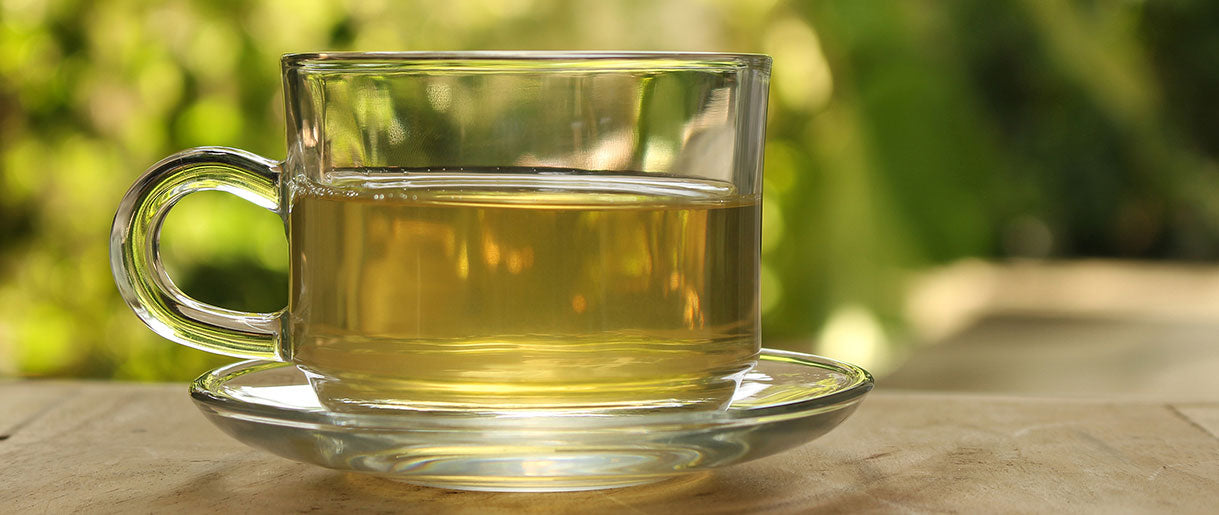

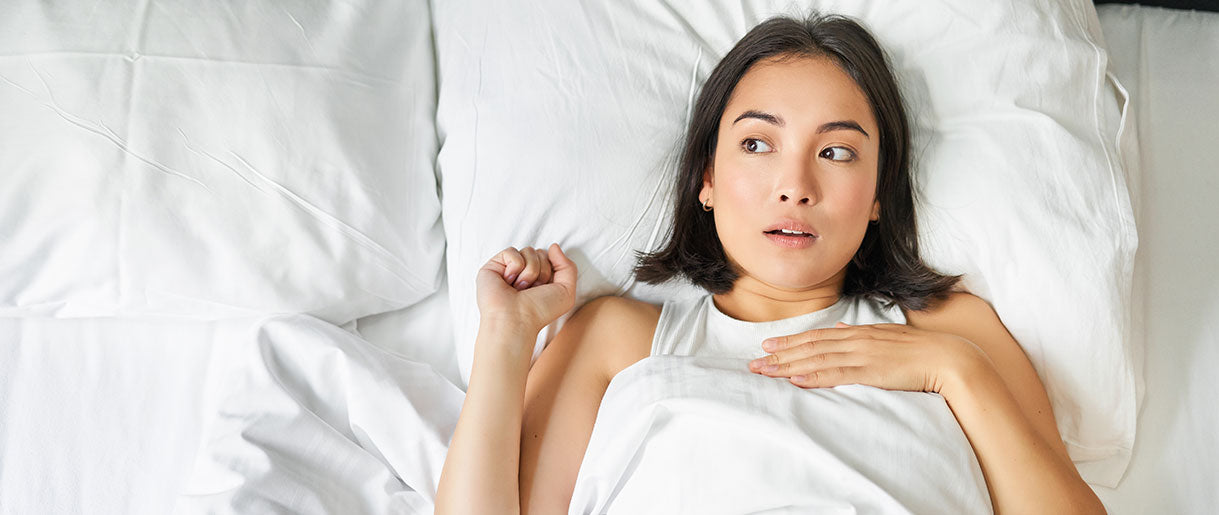
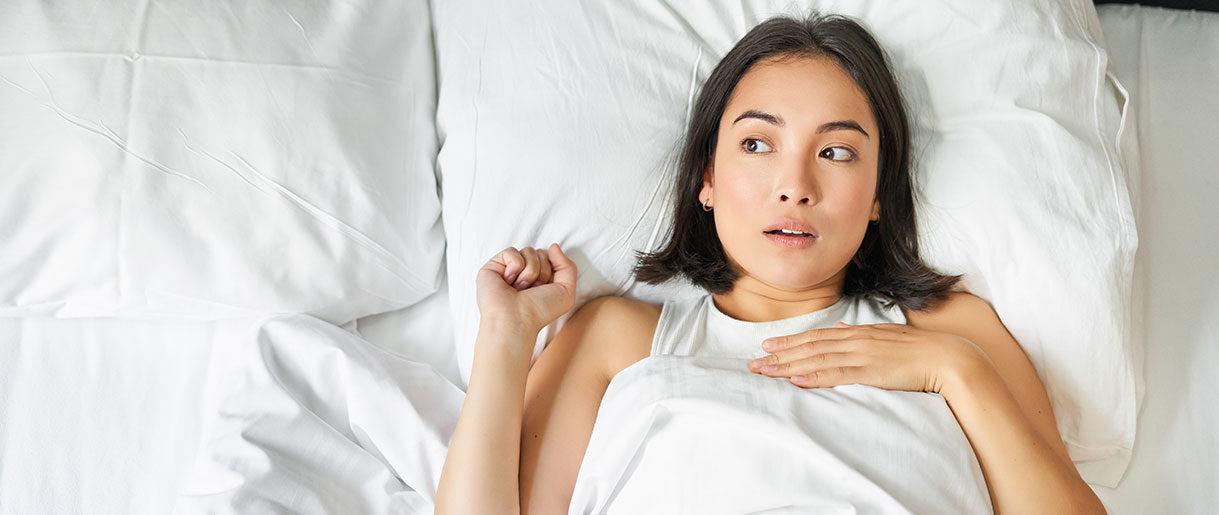
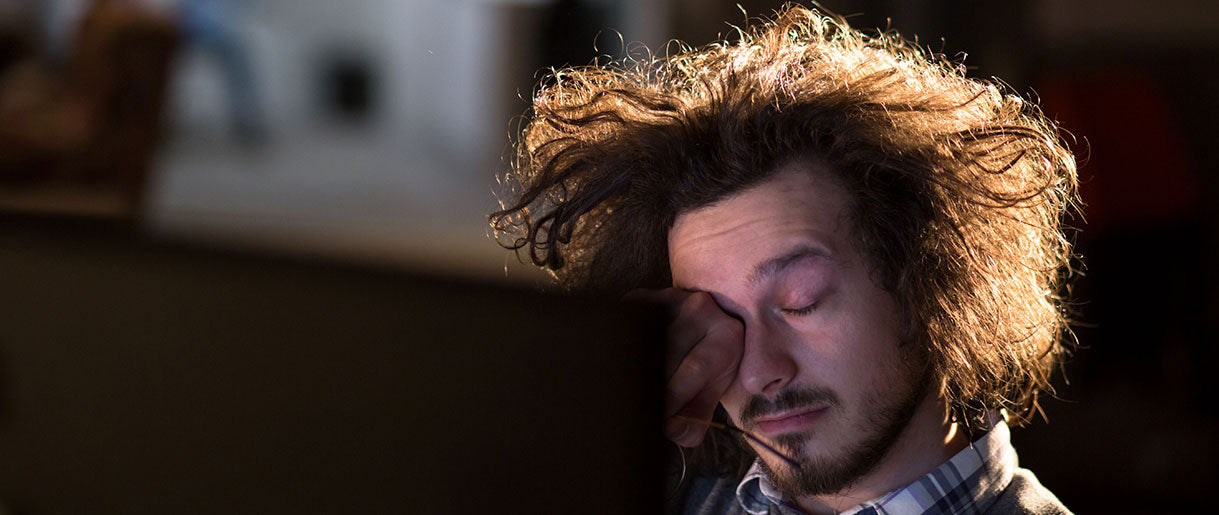

Let Us Know Your Comments